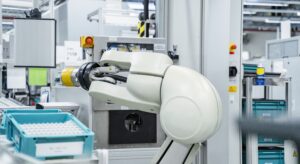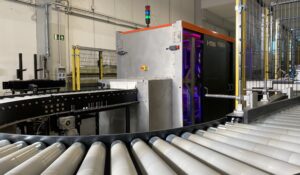CNC machining (Computer Numerical Control) has become one of the most sought-after solutions in modern industry. Its ability to produce parts with extreme precision and in large quantities has revolutionised sectors such as automotive, aeronautics, electronics and industrial design.
But… What exactly is CNC Machining?
CNC machining is a manufacturing process that uses computer-controlled machines to remove material from a workpiece blank to give it the desired shape. These machines can use a wide variety of materials, from metals such as steel and aluminium to plastics and composites. The main advantage of this process is the precision it offers, as CNC technology allows working to very small tolerances, resulting in final products with an exact finish and guaranteed repeatability on every part.
Advantages of CNC Machining
The use of CNC machining for the manufacture of parts offers many advantages:
- High precision and repeatability: CNC technology makes it possible to produce parts with extremely precise dimensions, ensuring that each product is identical to the previous one, with no margin for error.
- Efficient production: CNC machines can work 24 hours a day without interruption, which speeds up production processes, especially in large-scale projects.
- Waste reduction: As an automated and precise process, CNC machining minimises material waste, which is not only economically beneficial, but also ecologically beneficial.
- Design flexibility: CNC machining can handle complex designs that would be impossible or too costly to manufacture using traditional methods. From complex geometric shapes to deep cavities, CNC allows almost total freedom in part design.
- Adaptability: CNC machines can be quickly reprogrammed to produce a new part. This makes the process ideal for prototyping or pre-series manufacturing without the need for large investments in new equipment.
Most commonly used materials for CNC machining
The most common types of materials used for CNC machining are alloys, stainless steel and aluminium. Alloys are a mixture of two or more metals and can vary in properties depending on the metals they are made of. In the case of aluminium alloys, they are lightweight and corrosion resistant, which makes them ideal for applications where low weight and weather resistance are required. Titanium alloys are light and resistant to high temperatures, making them ideal for aerospace applications.
Stainless steel is a popular material for CNC machining due to its durability and corrosion resistance. Stainless steel is an alloy of iron, chromium and nickel, which gives it excellent corrosion resistance in wet and salty environments. It is easy to clean and maintain, making it ideal for applications in the food and pharmaceutical industries.
Aluminium is a commonly used material in CNC machining due to its low weight and excellent thermal conductivity. It is also corrosion resistant and easy to machine. However, aluminium is relatively soft and can be easily scratched or deformed, making it less suitable for heavy-duty applications.
Influence of i-mas
If you are looking for an effective solution to manufacture your parts to the highest standards of precision and quality, CNC machining is the best option.
At the manufacturing and assembly department at i-mas, we have the infrastructure and experience to turn your ideas into reality. With two production centres dedicated exclusively to innovation and development, and three specialised workshops (CNC machining, assembly and engineering), we offer a comprehensive solution ranging from the manufacture of parts to the production of pre-series and assemblies. Our commitment to excellence and customisation ensures that your project is in expert hands.



